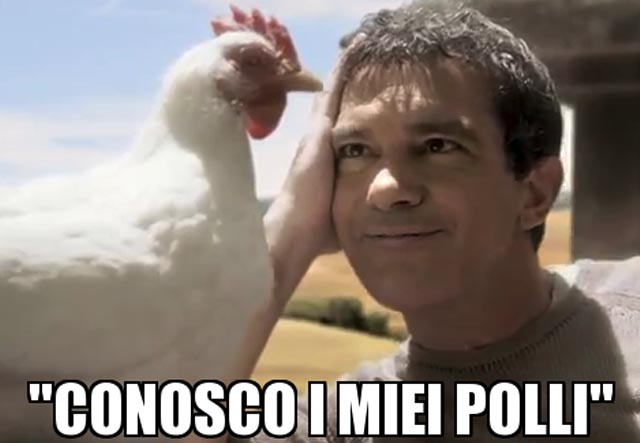
Conoscete la differenza tra SAPERE e CONOSCERE? In Italiano entrambi significa: to know. Però c’è una grande differenza nel modo in cui vengono utilizzati e in quale contesto vengono utilizzati. Oggi la mia amica Roberta di Firenze passa dal blog per darci una breve lezione per spiegare la differenza.
Do you know the difference between SAPERE and CONOSCERE? In Italian, they both mean to know. But there is a big difference in how they are used and in which context they are used. My friend Roberta who lives in Florence stops by the blog today to give us a brief lesson and explain the difference.

Ciao a tutti! Sono Roberta, un’insegnate d’Italiano e Melissa ed io siamo colleghe. Oggi vorrei parlavi dei due verbi interessanti: Sapere e Conoscere.
Hi everyone! I’m Roberta, an Italian teacher, and Melissa and I are colleagues. Today I would like to talk to you all about two interesting verbs: Sapere and Conoscere.

Sapere
In generale, si usa con/per: informazioni precise, descrivere un fatto/situazione, descrivere la capacità di fare qualcosa, quindi con un verbo.
In general, you use sapere to express knowledge of precise information, describe facts and situations, to describe the ability to do something with just one verb.
Ecco alcuni esempi
Sai nuotare?
Sai che ore sono?
Sai dove si trova “via Garibaldi”?
Sai che tra una settimana partirò per il Marocco?
Ricordiamo che si usa sapere al passato prossimo per descrivere un’informazione ricevuta da un’altra persona, come in inglese “have you heard….?”
Remember that you use the past tense to describe information received from another person, as in English: “have you heard?”
Esempio: Hai saputo che Marco si licenzierà il prossimo mese?
Conoscere
In generale, si usa per: esprimere la conoscenza di persone, posti, città, ed è seguito da un sostantivo.
In general you use conoscere to express familiarity with someone, places, cities and it is followed by a noun.
Ecco alcuni esempi
Conosci Vittorio? E’ un architetto molto bravo.
Conosci un buon ristorante a Siviglia?
Conosco molto bene quella città, è meravigliosa.
Ricordiamo che si usa conoscere al passato prossimo per indicare il primo incontro con una persona.
Remember that one uses conoscere in the past tense tense to indicate when you first met someone
Esempio: Quando ho conosciuto mio marito avevo 20 anni.
Grazie Roberta!
If you are looking for a homestay in Florence take a look at Roberta’s homestay during which she will give you many more insights into the Italian language during a week spent in her company. Homestays in Italy—that is living with your language teacher and learning and speaking with them everyday are a great ways to improve your language skills. Click on this link for more information about Roberta’s Homestay in Florence
Carrying on with the theme of the words of the day: Conoscere and Sapere—here is one of my favorite Italian expressions that uses the word “Conoscere.”
Conosco i miei polli

Conosco i miei polli means to know what you are talking about. Pick up a copy of my latest novel set in Italy “Eternally Artemisia” and find out where and when I use this idiom. Click on this link to go to Amazon to find the book
For a video on more Italian idioms I made click here
To learn how to conjugate / coniugare conoscere e sapere check out this little video my another friend Italian friend and teacher—Serena:
Whew! Now that we are done with the grammar lesson its time to relax! While you absorb all this information about Conoscere and Sapere check out these songs using the words of the Day:
Max Pezzali: “Non lo so”
Giorgia “Il mare sconosciuto”
FYI: As with many Italian words, if you add an “s” in front of some words, it creates an antonym or the opposite of the word. As in the case of the past form of conoscere/conosciuto the word sconosciuto is formed, meaning something that is unknown or the word for a stranger.
Esempi
È stata avvistata una specie sconosciuta di scimmie.
Dico sempre a mio figlio di non accettare nulla dagli sconosciuti.












Cara Melissa
Malgrado avendo letto i tuoi blog, so che, sfortunatamente, non ti conosco da vero, bocc’ a bocca, pett’ a petto. Carlo